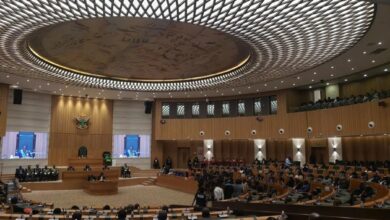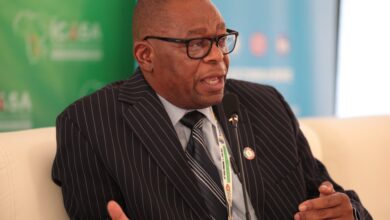
Rumbidzai Mhlanga/Sibonginkosi Mpofu
Bulawayo’s water crisis has escalated to a critical point, with civic society groups warning that the situation is deteriorating rapidly. The Bulawayo Progressive Residents Association (BPRA) and the Matabeleland Institute for Human Rights (MIHR) have called on the government to release funds and take immediate action to avert a humanitarian disaster.
In a statement presented to a joint Parliamentary Portfolio Committee on Local Government, Public Works, National Housing, and the Thematic Committee on SDGs, BPRA and MIHR outlined the severe impact of water shortages on Bulawayo residents. The city, once known for its reliable water supply, is now facing chronic shortages, with some residents going for as long as five months without water.
“The Bulawayo water shortage is not a new issue, it is a crisis that dates back to colonial times, exacerbated by modern-day mismanagement and climate change. The city’s water infrastructure is in disrepair, with burst pipes and leaks contributing to a non-revenue water loss rate of 52%.” reads the statement.
According to the statement,the crisis has been worsened by a series of challenges, including illegal gold panning in dam catchment areas, which has reduced water inflows. Additionally, Bulawayo’s geographical position in a drought-prone region means that even during rainy seasons, the city’s dams struggle to fill up.
The water shortages have not only affected daily life but also pose serious health risks. The statement highlights that the lack of clean water has led to outbreaks of diarrhoea and cholera.
According to the World Health Organization, 51% of cholera cases in Zimbabwe involve women, with children under five being the most vulnerable.
“We are witnessing an increase in waterborne diseases due to contaminated water. In Luveve, 18 lives were lost in 2020 due to gastrointestinal disease linked to polluted water,”the document highlights.
The civic groups added that the current water-shedding schedules, which provide residents with water for only 28 hours a week, are contributing to further contamination as pipes rust and deteriorate.
Beyond health concerns, the crisis has deepened social inequalities. Women and children, especially in high-density areas like Magwegwe and Cowdray Park, are forced to queue for water late into the night, often at personal risk.
“We have recorded cases of gender-based violence, sexual harassment and mugging of women and children who have to fetch water from unprotected sources in the early hours of the morning. This is a ticking time bomb for the city,” it stated.
Economically, Bulawayo is suffering as businesses close down due to unreliable water supplies. Investors are reportedly shying away from the city, fearing that the unstable infrastructure could derail their operations.
“The City of Kings, once a thriving economic hub, is now facing disinvestment. Potential investors are turning away, leaving Bulawayo on the brink of economic stagnation,” the statement further reads.
In their recommendations, BPRA and MIHR called on the government to release the US$15 million requested by the Bulawayo City Council for urgent water infrastructure repairs. They also urged the government to expedite the completion of the Lake Gwayi-Shangani project, which is expected to alleviate the city’s water problems.
“We implore the Treasury to release the remaining funds immediately. Bulawayo cannot continue to face such dire water shortages without proper investment in infrastructure. Time is running out, and we are on the verge of a full-scale humanitarian crisis,” stressed the groups.
Civic groups further recommended that at least 10% of the national budget be allocated to water service infrastructure in the city and called for greater collaboration between local authorities and the Zimbabwe National Water Authority (ZINWA) to improve water management. As the water crisis continues to take its toll on Bulawayo




